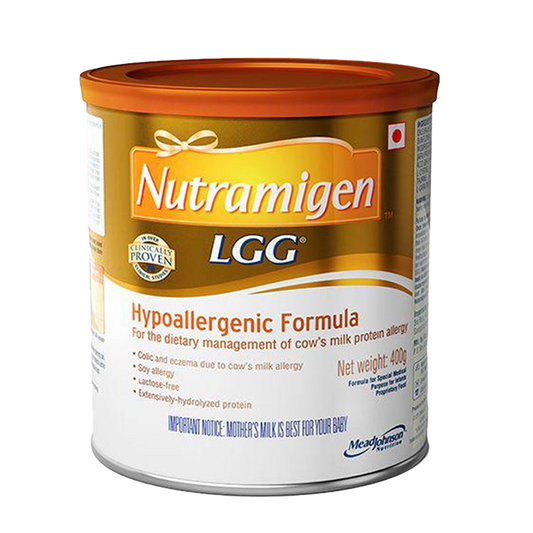Here’s a lowdown on the essential nutrients for your child’s brain development
 You must have been stumped many a times by your child’s energy and inquisitiveness? But answering his queries and playing along is not the only way to help her progress. Of course good parenting skills will help you but nutrition is important for all growing children, especially between the ages 2 and 6 years, for rapid brain development. Among the essential nutrients like DHA, carbohydrate, folate, iodine, iron and ARA, it is DHA that is crucial for brain development.
You must have been stumped many a times by your child’s energy and inquisitiveness? But answering his queries and playing along is not the only way to help her progress. Of course good parenting skills will help you but nutrition is important for all growing children, especially between the ages 2 and 6 years, for rapid brain development. Among the essential nutrients like DHA, carbohydrate, folate, iodine, iron and ARA, it is DHA that is crucial for brain development.
Providing these essential nutrients to your child is important as each nutrient has a role to play in your child’s holistic growth. Breast milk is the best form of food that includes most nutrients. But as your child grows and adapts to other dietary habits see to it that she gets enough of DHA that is the major structural fat in the brain, essential to building strong and efficient connections between neurons; folate which is Vitamin B that plays a key role in healthy cell formation, growth, reproduction and helps build genetic material; iodine that helps in the synthesis of thyroid hormones, directly affecting the brain as well as the muscles, heart, kidneys, and pituitary gland; iron that is vital to the formation and healthy function of red blood cells, which carry oxygen to the brain and fuel its growth; zinc that keeps the immune system strong as well as helps in wound healing and regulating blood, bone, and tissue formation and choline that is important for the nervous system and in case of asthma. Choline might help decrease swelling and inflammation.
folate which is Vitamin B that plays a key role in healthy cell formation, growth, reproduction and helps build genetic material; iodine that helps in the synthesis of thyroid hormones, directly affecting the brain as well as the muscles, heart, kidneys, and pituitary gland; iron that is vital to the formation and healthy function of red blood cells, which carry oxygen to the brain and fuel its growth; zinc that keeps the immune system strong as well as helps in wound healing and regulating blood, bone, and tissue formation and choline that is important for the nervous system and in case of asthma. Choline might help decrease swelling and inflammation.
 This apart, there are other nutrients like copper, selenium etc that help in the holistic growth of your child. Nutritionist Hena Nafis says, “A child’s body will respond to a deficiency of an essential nutrient in two ways – continuing to grow and using up body stores of the nutrient causing deficiency diseases like anaemia (iron deficiency), xeropthalmia (vitamin A deficiency) etc and reducing growth to conserve the concentration of the nutrient in the body. The best way to guard your child against deficiencies is to give him a varied diet including whole grains such as whole wheat, brown rice, oats, barley, 2-3 servings of fruits, 3-5 servings of vegetables, legumes, eggs, unprocessed meat, oily fishes (at least twice a week) such as pomfret, hilsa, tilapia and also some nuts and seeds.”
This apart, there are other nutrients like copper, selenium etc that help in the holistic growth of your child. Nutritionist Hena Nafis says, “A child’s body will respond to a deficiency of an essential nutrient in two ways – continuing to grow and using up body stores of the nutrient causing deficiency diseases like anaemia (iron deficiency), xeropthalmia (vitamin A deficiency) etc and reducing growth to conserve the concentration of the nutrient in the body. The best way to guard your child against deficiencies is to give him a varied diet including whole grains such as whole wheat, brown rice, oats, barley, 2-3 servings of fruits, 3-5 servings of vegetables, legumes, eggs, unprocessed meat, oily fishes (at least twice a week) such as pomfret, hilsa, tilapia and also some nuts and seeds.”
Food Sources
- Calcium - milk, yogurt, spinach and sardines
- Vitamin A - carrots, tomatoes, egg yolk, liver, cheese, yogurt, fatty fish and fish liver oil
- Iron - red meat, egg, green leafy vegetables, dates, raisins, okra
- Vitamin B12 - beef, fish, cheese and eggs
- Zinc - beef, cashews, garbanzo beans and turkey
- Potassium - bananas, spinach, potatoes and apricots
- Vitamin C - oranges, peppers, broccoli and bananas
Recipes








